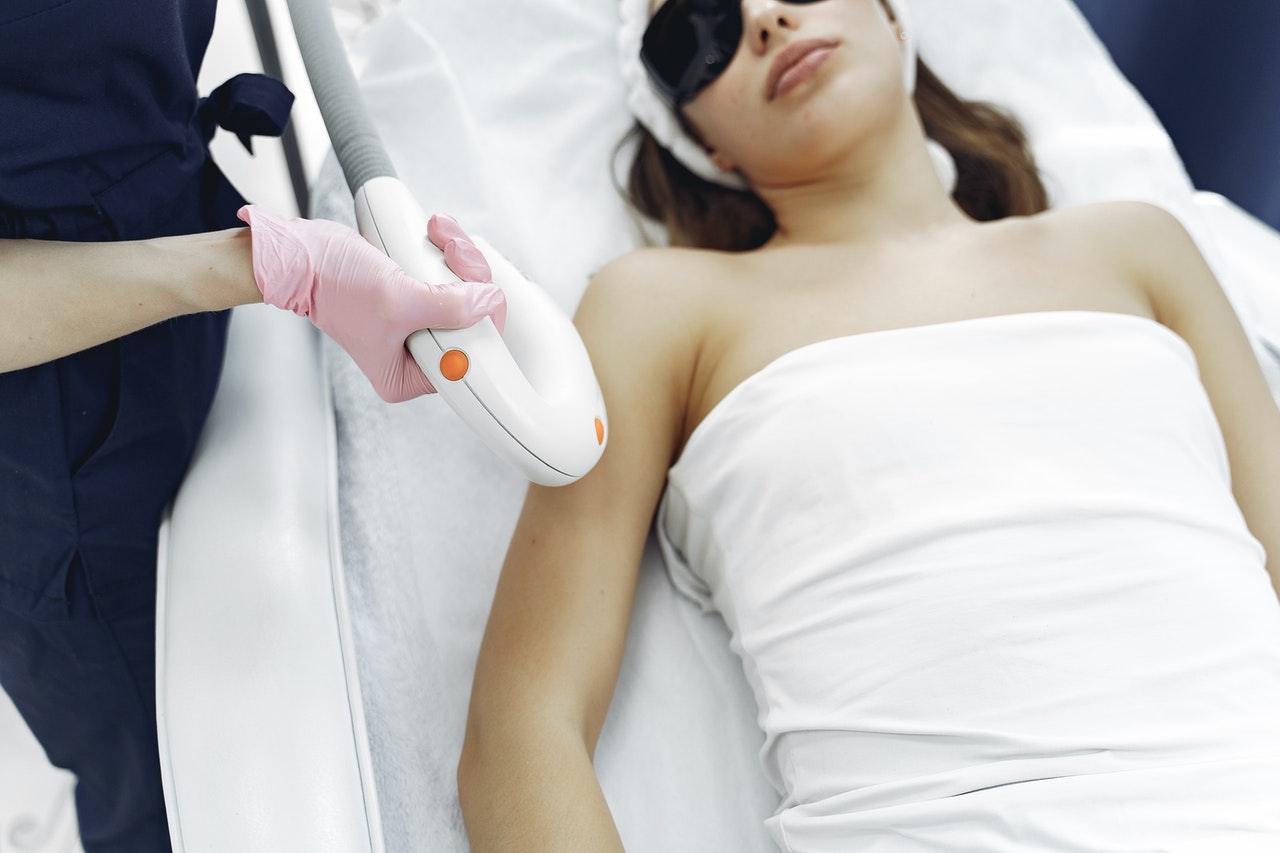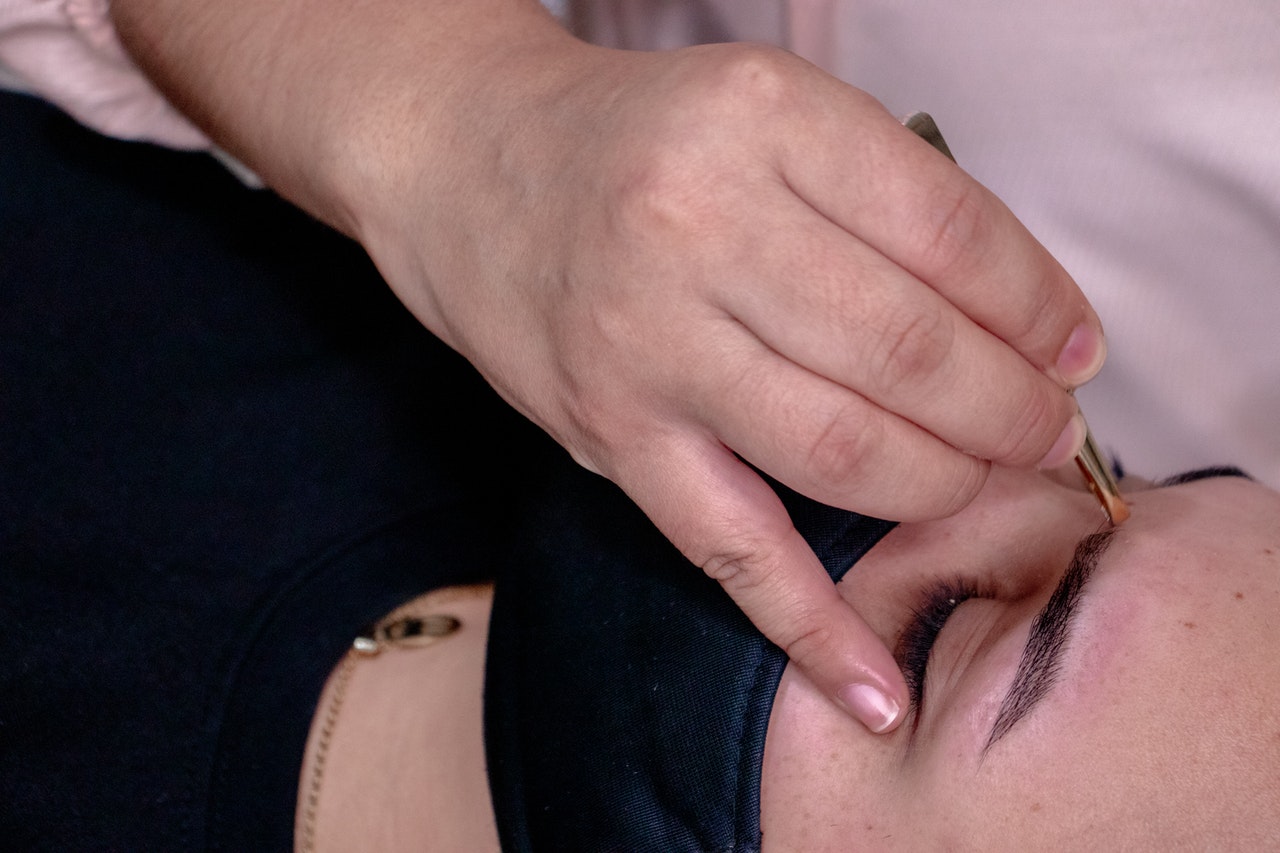
Almost the entire human body is covered with hair. They perform various functions, such as regulating the temperature of our body as well as protecting it from external damage. The distribution of hair on the human body varies greatly. They can be thin and light, barely noticeable. However, some of them become thicker and darker with age. Examples include hair on the legs, under the arms, or on a man’s chin.
Hair growth in women
For women, it can be unexpected to see darker, coarser hairs in not-so-obvious places, such as around the nipples. However, this should not be alarming in any way, as the occurrence of dark hair in the nipple area in women is completely normal.
In most cases, the presence of dark hair in intimate areas such as the female breasts is not a cause for concern. Therefore, most women do not report this “problem” to a specialist. However, there are times when it is necessary to consult a doctor, as these seemingly innocent hairs may turn out to be a sign of health problems.
Is nipple hair important?
Humans evolved body hair for a number of reasons. However, no one is quite sure of the purpose of hair located on the breasts, around your nipples. It is possible that nipple hairs are the leftover form when humans need body hair to regulate their body temperature. But according to today’s research, the hair around your nipples has no specific function. They’re just simply there.
Causes of the appearance of hair follicles in unexpected parts of the body in women
Many women experience the occurrence of hairy nipples. However, not all of them go to a doctor about them, so there is no exactly known number of women who are affected by this particular situation. There are a few underlying causes that can lead to the growth of nipple hairs. With most of them being very popular, it is easy to explain the prevalence of this phenomenon.
Hormone imbalance
Thick, dark hairs may show up once you go through puberty. This is when hormones become active and act much more intensely than in earlier years of life. But it is important to remember that nipple hair can also appear later in life.
Subtle hormonal changes can also occur during periods such as pregnancy and menopause. During pregnancy, there’s a surge in estrogen levels. This helps promote and prolong what’s called the anagen, or hair growth phase.
Overproduction of male hormones causes hair growth in unexpected areas
Also, the production of too much androgen by a woman’s body can be the cause of unwanted nipple hair. Testosterone levels, which are usually higher in men, maybe the reason for unusual hair growth in women. Other symptoms associated with having too high levels of testosterone are oily skin, acne, irregular menstrual periods, also known as amenorrhea, male-pattern baldness including hair loss on your head and large muscle growth, characteristic of the male sex. Infertility, increased hair growth in other places, like the face, and having difficulties in losing weight are other symptoms that accompany this ailment.
Cushing’s syndrome
Cushing’s syndrome is a set of multiple clinical symptoms caused by an excess of glucocorticosteroids in the body. Most often, Cushing’s syndrome is accompanied by few symptoms. However, in the advanced stages of the disease, symptoms can be extensive and severe. One of the symptoms related to Cushing’s syndrome is hirsutism, which is excessive hair growth in women that appears in areas characteristic of men. However, excessive hair is not the only symptom that occurs in women with Cushing’s syndrome. Symptoms that may also occur are skin hyperpigmentation, bone pain, hypertension, muscle weakness, or easy bruising. Some doctors say that taking certain medications including oral steroids, testosterone, and some immunotherapy medications, can cause excess hair on your breasts.
Polycystic ovary syndrome
PCOS, also known as polycystic ovary syndrome is caused by an imbalance of reproductive hormones. This disorder may cause side effects such as infertility, irregular periods, ovarian cysts, and excess hair growth in places more typical for men, including the hair around your nipples. It is estimated that 1 in 10 women of childbearing age has polycystic ovary syndrome.
Medications
Some of the medications, like testosterone, glucocorticosteroids, and some immunosuppressants may also cause hair growth in male-specific areas.
Getting rid of the nipple hairs
If hairy nipples make you uncomfortable then you can easily remove the hair. However, it is important to keep in mind the softness of the breast area. Care must be taken to avoid cuts, infections, and ingrown hairs during the hair removal procedure.
Trimming
One of the least harmful options is trimming your nipple hair. However, great care must be taken not to cut the delicate breast skin. The best way to do this would be to use small scissors and cut the hair close to the skin. You should also keep in mind that the hair you cut grows back, so you will have to repeat the procedure regularly.
Plucking

The safest and least invasive way to remove nipple hair is to pluck it out with tweezers. It is also possible to remove to wax them, but with this procedure, you have to reckon with the pain it entails.
However, you should remember that shaving the hairy nipples is not the best idea. This is because it risks the possibility of jamming and the development of infections on the sensitive skin of the breast. You also risk of ingrown hairs, that may be a nuisance and hard to get rid of.
Waxing
It is possible to remove nipple hairs by waxing or sugaring. However, it can be extremely painful to the delicate skin of woman’s breasts. The best way to remove hair with wax is to go to a specialized salon. By going to a professional aesthetician, you reduce the risk of infection or ingrown hairs after they start to grow back.
Hair removal creams
Reaching for the hair removal cream is not a good idea, even if you don’t like the excess hair around your nipples. Both hair removal cream and bleach can contain harsh chemicals that can irritate sensitive areas, causing skin irritation and rashes.
Laser hair removal
If your nipple hair is quite dense or getting rid of the hair around your nipples with tweezers is painful, you may want to consult your dermatologist about longer-term solutions. One of them is laser treatment. This procedure involves inserting a needle into the hair follicle and using an electric current to destroy the hair root.
Hormonal treatment
If hormonal imbalances are the cause of your nipple hair problems, your healthcare provider may recommend hormonal treatment. The most common option is to give the patient birth control pills that contain both estrogen and progesterone. However, depending on individual needs, single hormone treatment is also possible.
Medical consultation
In most cases, a consultation with a doctor about hairy nipples is not necessary. However, if you are also noticing other disturbing symptoms in yourself, too much hair in other parts of your body, then you should consult your doctor.
Your doctor will be able to assess whether your hair levels are natural or have some other cause within them. He or she can also help you decide on the best way to remove the disturbing hair.
Summary
Nipple hair growth is completely normal part of human life and it’s also rarely a sign of an underlying problem. You may want to remove them, like most women do with leg hair, if it bothers you. Plucking or trimming are the easiest methods to get rid of the hair surrounding your nipples. However, a procedure like laser hair removal may slow or stop entirely hair growth.
Remember that if you are dealing with unusual symptoms of health conditions you should seek for wellness professionals help.
One thought on “Female nipple hair – is hair around the nipple normal for females?”
Leave a Reply Cancel reply
This site uses Akismet to reduce spam. Learn how your comment data is processed.

I have read the article and felt much better about myself. I thought there is something very wrong with me and I started to question my sex however this made me understand my body a bit more. Thanks for making my mental health better! The best article possible!